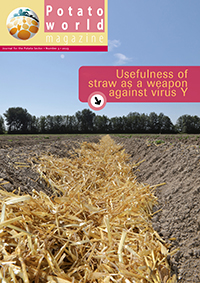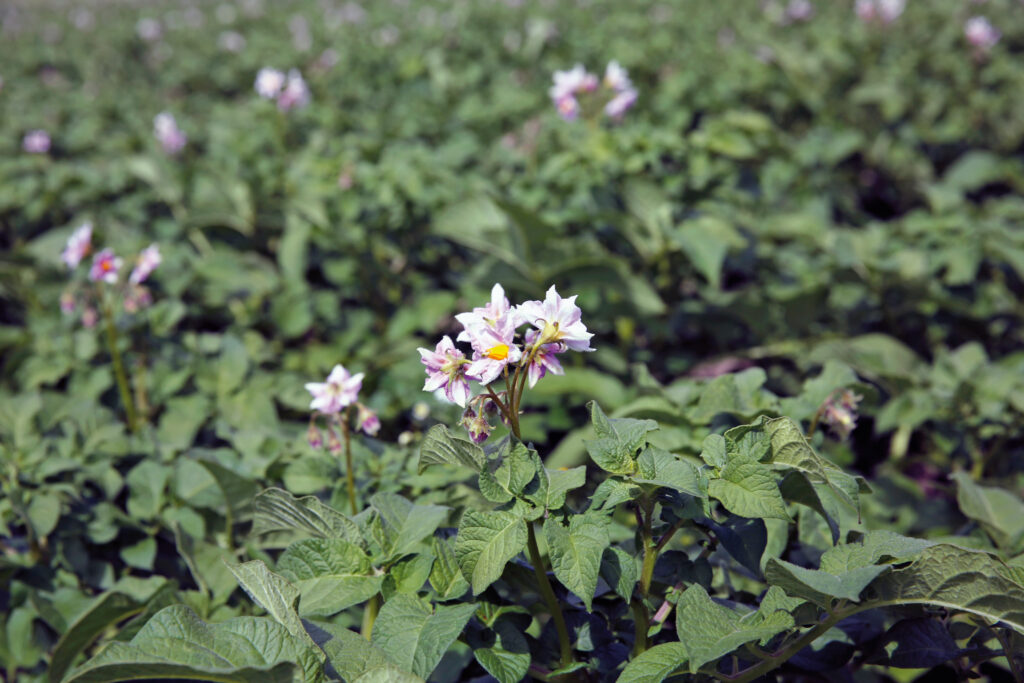Already a subscriber? Activate your premium account

Potatoworld Magazine

When I am in a more urban social environment and I tell people that I spend my working time on studying potatoes, I often get comments like “is that a job? or potatoes is that important?” So I was positively surprised last December by a newspaper article from an Dutch economist, Peter de Waard, stating that the French pharmacist Parmentier should have gotten the “Nobel peace price” for introduction and promotion of the potato in France. He drew this conclusion from two articles written by American economists about the role of potato in the urbanization process in the centuries before 1900 in Western Europe and the role of agricultural productivity and potatoes on conflicts in the same period. (Iyigun, Nunn, & Qian, 2017; Nunn & Qian, 2011)
From these two studies they drew some important conclusions: Firstly the introduction of potatoes from the new to the “old world” enabled population growth and urbanization and with this urbanization urban manufacturing developed. They estimated that the introduction of potato was for nearly 50 percent responsible for the post 1700 urbanization rate. Secondly during the same period the introduction of potatoes led to a significant reduction (of about 15 percent) in conflicts between people. Especially the number civil conflicts was reduced.
The explanation according to the economists who performed these studies was: Before the introduction of potatoes failing harvests led to food shortages and these food shortages reduced the increase in population and led to conflicts over more land. With the introduction of potatoes more calories could be produced, crop failures decreased and the nutritional value of the diet became better. Because more calories could be produced on less land the value of land decreased and it was not necessary anymore to conquer more land. Besides that, farmers had enough to eat so the necessity to rent themselves out as mercenaries disappeared and farmers were less likely to revolt against their Landlords. So because of potatoes after 1700 a relatively peaceful period with population growth and economic growth occurred.

A lot of individuals have been involved in the introduction of potato in Europe, so I am not really sure if Parmentier who popularized the potato in France, the Prussian ruler Frederick the Great who promoted the spreading of potato in Prussia or in Ireland Sir Walter Raleigh was most important and should earn a price. Fact is that potato has earned his place in the development of urban Europe.
What can we learn for this for now and the future ? Potato is still one of the most effective crops in terms of calories and nutrition per area land or per liter water, which is maybe more important. So potato still contributes in delivering a sufficient diet for large parts of the world and through this it may reduce the amount of conflicts. The role of potatoes in the world at present may be just as important as in pre 1900 Europe.
And for potato professionals; if someone (from a city) asks if it is a job to spend your working life on potato you can reply that the cities and industrialization as we know now for a large part depended on potato production and that you are actually still working to bring more peace to the world.
Dr. Ir. Peter Kooman
Professor Potato supply chain and sector innovation
CAH Vilentum University of Applied Sciences
p.kooman@cahvilentum.nl
Iyigun, M., Nunn, N., & Qian, N. (2017). The Long-run Effects of Agricultural Productivity on Conflict, 1400-1900 (IZA DP No. 11189).
Nunn, N., & Qian, N. (2011). The Potato’s Contribution to Population and Urbanization: Evidence from a Historical Experiment. Quarterly Journal of Economics, 126(2), 593-650.
Events
©2015 - 2024 Potatoworld | Webdesign and realisation COMMPRO